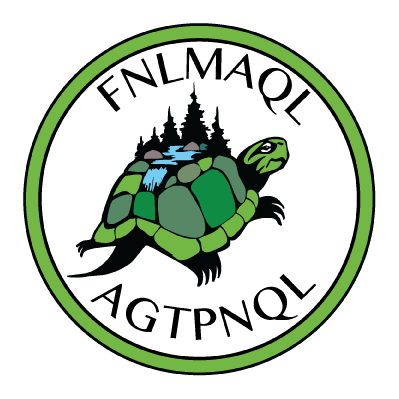Land Management
What is Land Management?
Land management is the day-to-day management and administration of reserve lands, environment, and resources. It generally includes activities related to the benefit of use and development of land for individual, collective, and economic purposes.
As identified in the Indian Act, reserve land is “a tract of land, the legal title to which is vested in Her Majesty, which has been set apart by Her Majesty for the use and benefit of a band”. Reserve lands are different from other land in that:
- Legal title to reserve lands is held by the Crown rather than by individuals or organizations;
- First Nations have a recognized interest in reserve land that includes the right to exclusive use and occupation, inalienability and the communal nature of the interest;
- The land cannot be seized by legal process or be mortgaged or pledged to non-members of a First Nation; and
- The Minister must approve or grant most land transactions under the Indian Act.
The Constitution Act of 1867 gives Parliament authority over “Indians and lands reserved for the Indians.” The Indian Act in place since 1876, was passed by Parliament under this authority and sets out the land management responsibilities of the Minister of Aboriginal Affairs and Northern Development for much of the reserve lands in Canada.
Indigenous and Northern Affairs Canada (INAC) provides land management services to First Nations across Canada. Land management generally includes activities related to the ownership, use and development of land for personal, community and economic purposes.**
Areas that fall under land management may include, but are not limited to:
Environmental assessment, management, protection;
Rules that apply to enact laws;
Licenses and leases;
Wills and estates;
Membership;
Revenues from natural resources;
Resolution of disputes regarding interests or rights on First Nation land;
Rules that apply to approval or exchange of First Nation land;
Public security and enforcement of laws;
Waste management;
Land registry;
Land Use Planning;
Law development.
Land Management Regimes
Reserve Land and Environmental Management Program (RLEMP)
The Reserve Land and Environment Management Program (RLEMP) provides funding to First Nations to develop the capacity needed to manage and exercise increased responsibility over their reserve land, resources and environment under the Indian Act.
Participating in RLEMP can prepare a community for transition to a more comprehensive land management regime, such as the First Nations Land Management Regime, or comprehensive self-government.
Three levels:
- Training and Development;
- Operational;
- Delegated Authority (closed to new entrants since 2011)**
First Nations Land Management Act (FNLMA)
The First Nation Land Management regime provides certain First Nations with powers to manage their reserve land and resources under their own land codes. The sections of the Indian Act dealing with land, resources and environment no longer apply to First Nations operating under their own land codes. For more information visit First Nations Land Management.
Comprehensive Self Government
Self-government agreements set out arrangements for Aboriginal groups to govern their internal affairs and assume greater responsibility and control over the decision making that affects their communities. Self-government agreements address: the structure and accountability of Aboriginal governments, their law-making powers, financial arrangements and their responsibilities for providing programs and services to their members.
Because Aboriginal groups have different needs, negotiations will not result in a single model of self-government. Self-government arrangements may take many forms based on the diverse historical, cultural, political and economic circumstances of the Aboriginal groups, regions and communities involved.
Comprehensive claims settlements also include self-government arrangements.***
** Indigenous and Northern Affairs Canada
*** NALMA: What is Land Management
TRAINING, DEVELOPMENT AND TECHNICAL SUPPORT
Workshops and Trainings
Pursuant to the Association’s objective “to provide continuing in-service education for First Nations Lands Managers,” we organize, facilitate, or sponsor trainings to encourage the professional development for our members.
In the past we have coordinated trainings such as:
- Introduction to Land Management;
- Environment Management and CEAA updates;
- ILRS training;
- Management on Indian Estates;
- Estate Administration, Matrimonial Real Property, Surveys, CPs and Oka letters;
- Proposed Family Homes on Reserves and Matrimonial Interests of Rights Act (Bill S-2);
- Work Plan development;
- Among others.
The trainings we facilitate are based on the needs of our members. We aim to provide our trainings and documentation in English and in French.
Our trainings generally occur at the Association’s Membership meetings and Board of Directors meetings.
Professional Development
Furthermore, all FNLMAQL members are eligible and encouraged to undertake training with NALMA. The following are training units that NALMA provides:
- Environment;
- Land Use Planning (“LUP”);
- Professional Development ; and
- Survey
You can learn more about NALMA’s trainings here.
Professional Lands Management Certification Program (PLMCP)
As a Regional Lands Association, the FNLMAQL supports NALMA in its goal of training and certifying land managers in our region. NALMA states that:
In order to implement the Reserve Land and Environment Management Program (RLEMP), NALMA in collaboration with INAC and subject matter experts developed the Professional Lands Management Certification Program (PLMCP). NALMA’s PLMCP is used across Canada to signify that a Land Manager meets specific criteria, keeps current in the field, and adheres to a professional Code of Ethics. It represents both an achievement and a responsibility for the individual Land Manager.
A Land Manager successfully completing Level I: Post-Secondary Training and Level II: Technical Training will be eligible to receive a Professional Lands Management Certification certificate from NALMA.
NALMA is currently accepting registration from both Levels 1 and 2 in English, as well as its Level 1 program in French, with the Université du Québec à Témiscamingue.
Financing is currently available for both programs. For more information on accessing funding, please contact RLEMP (at) sac-isc.gc.ca.
For more information on the English program, please visit NALMA’s website.
For more information about the French Level 1 PLMCP, offered by UQAT, you can visit the website for more information on the micro-program and the certificate. For questions about the Program, please contact Francis Levesque here.
Due to the Covid-19 pandemic, the Association will have no in-person meetings or trainings for the duration of 2020. Any trainings provided will be by teleconference or webinar. For more information contact us here
Technical Support
The Association aims to provide technical support in all areas of land management. It does so by relying on the expertise of its members and network, and staying current with applicable laws, procedures, technologies, and other tools. Members have access to many technical documents through the Peersite.
Any and all request for support is encouraged, the FNLMAQL team will gladly assist its members.
Social Media

